CIRCADIAN LANDSCAPE BY JESSICA ANTOLA
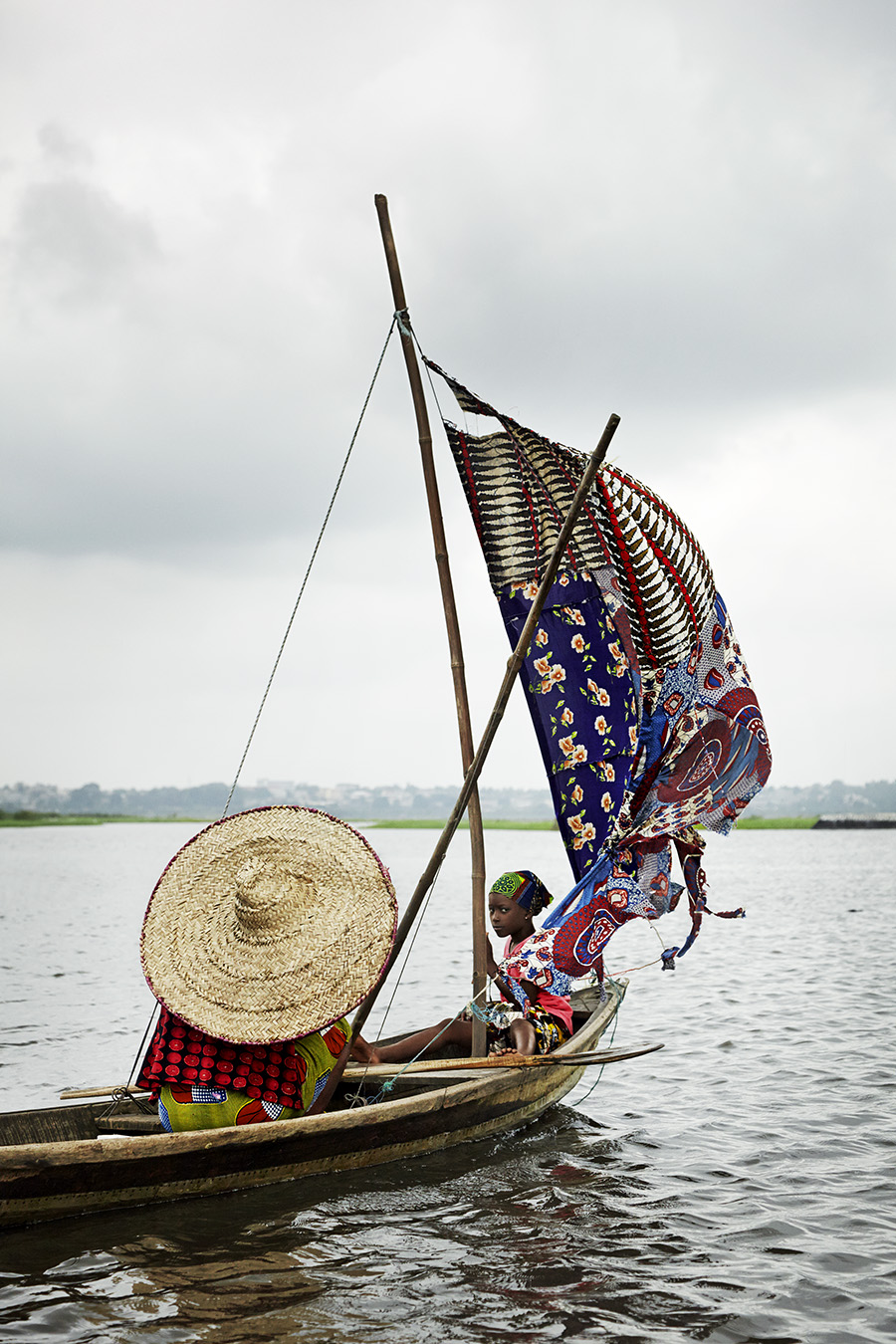
Tofinu Girls, Benin 2014
“The Tofinu people of Ganvie built houses on stilts in Lake Nokoué during the 16th and 17th centuries to escape capture by Fon warriors and avoid being sold to European slave traders. This location provided a safe haven for the Tofinu people, who still live here and use boats for transport.”
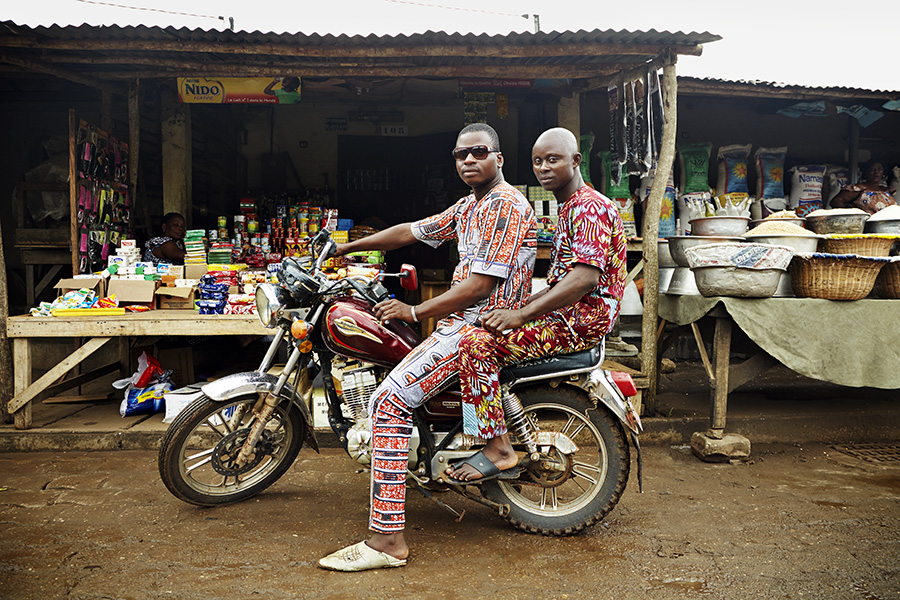
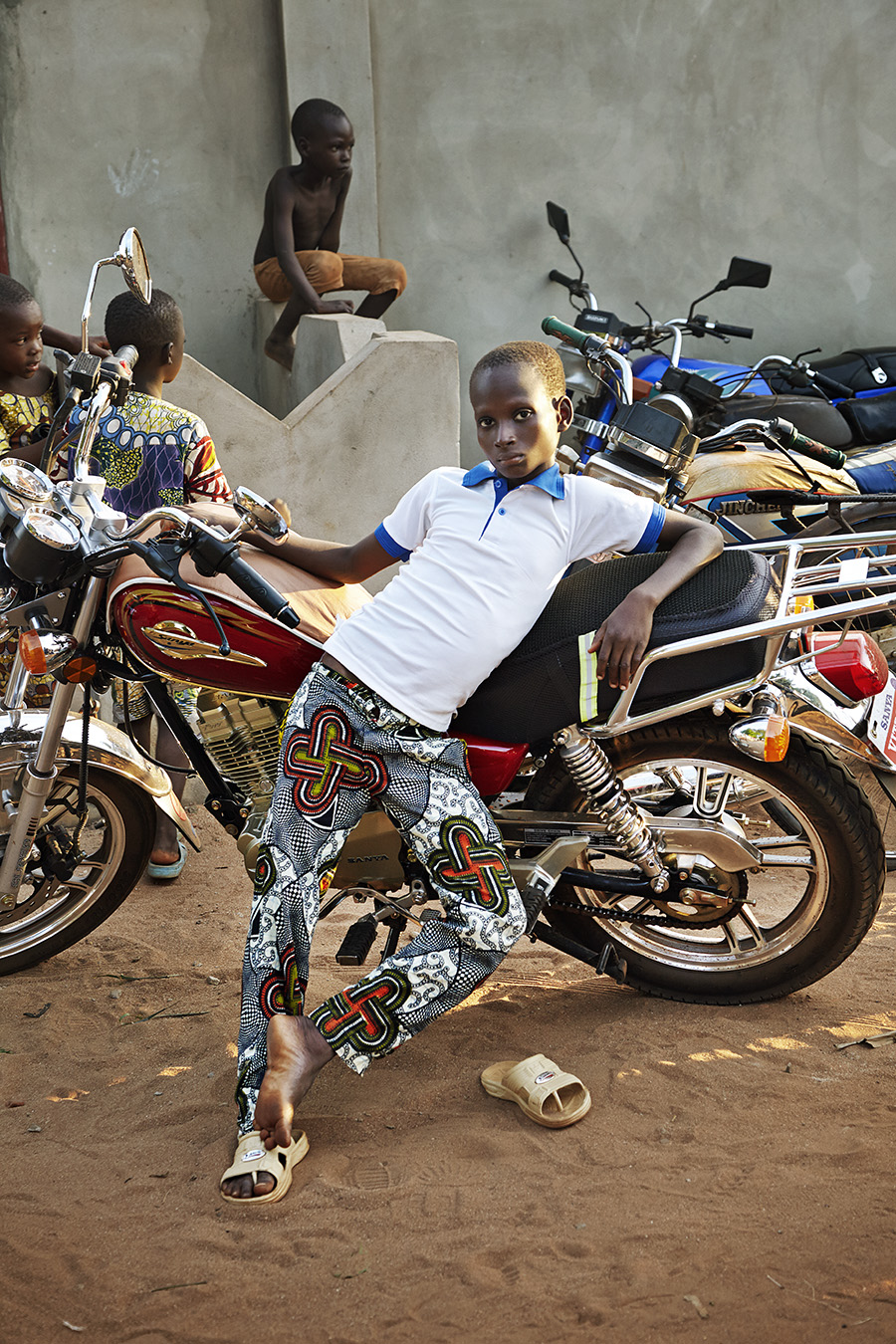
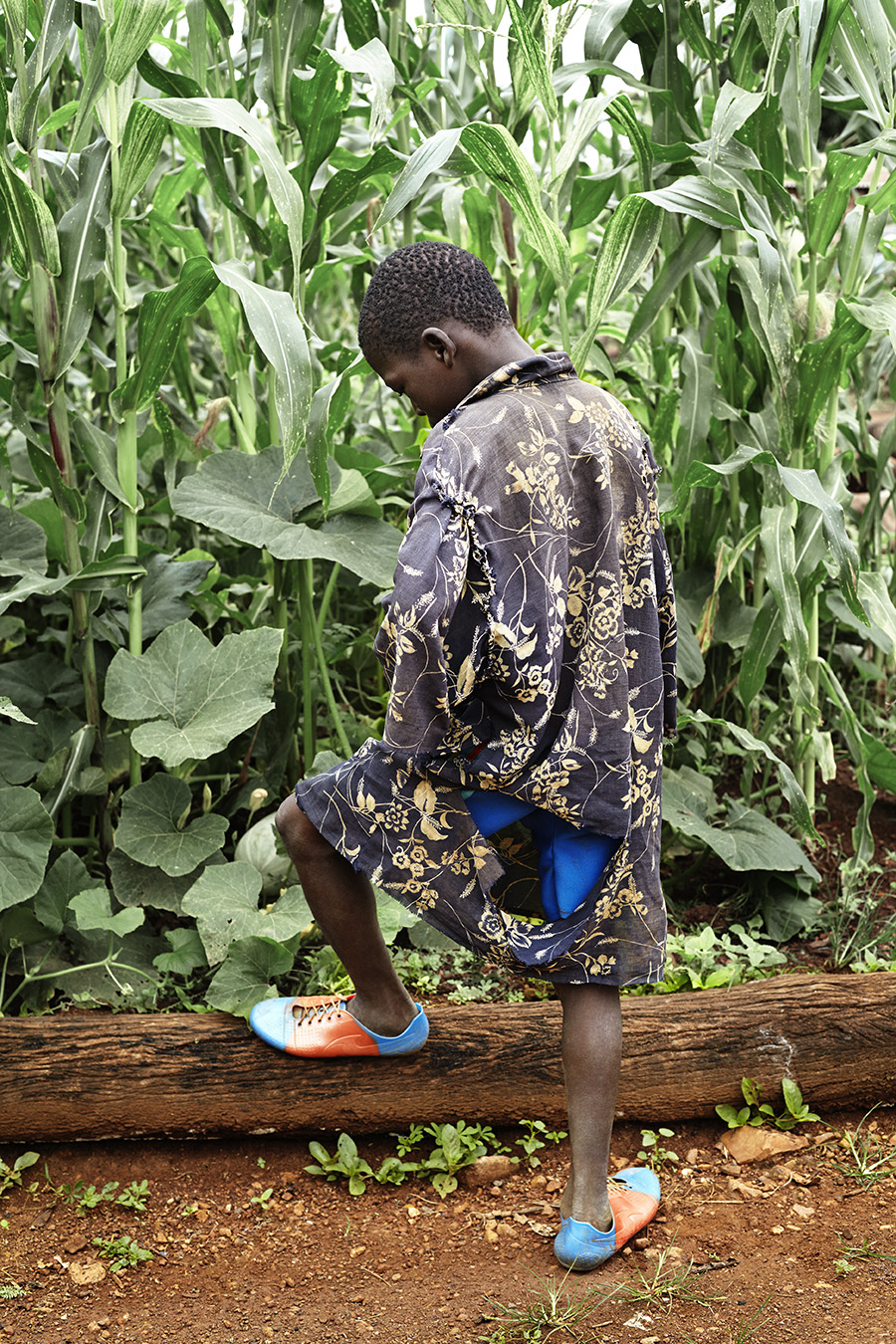
Lundi and His Shoes, Burkina Faso 2014
“We drove deep into Burkina Faso to visit the Lobi people, ‘the children of the forest.’ Their strong ties to the spirit world were evident from the shrines around their clay homes. Lundi, who was born on a Monday, was wearing an oversized patterned shirt that had been carefully repaired several times. I felt his pride in his clothing and indestructible shoes.”
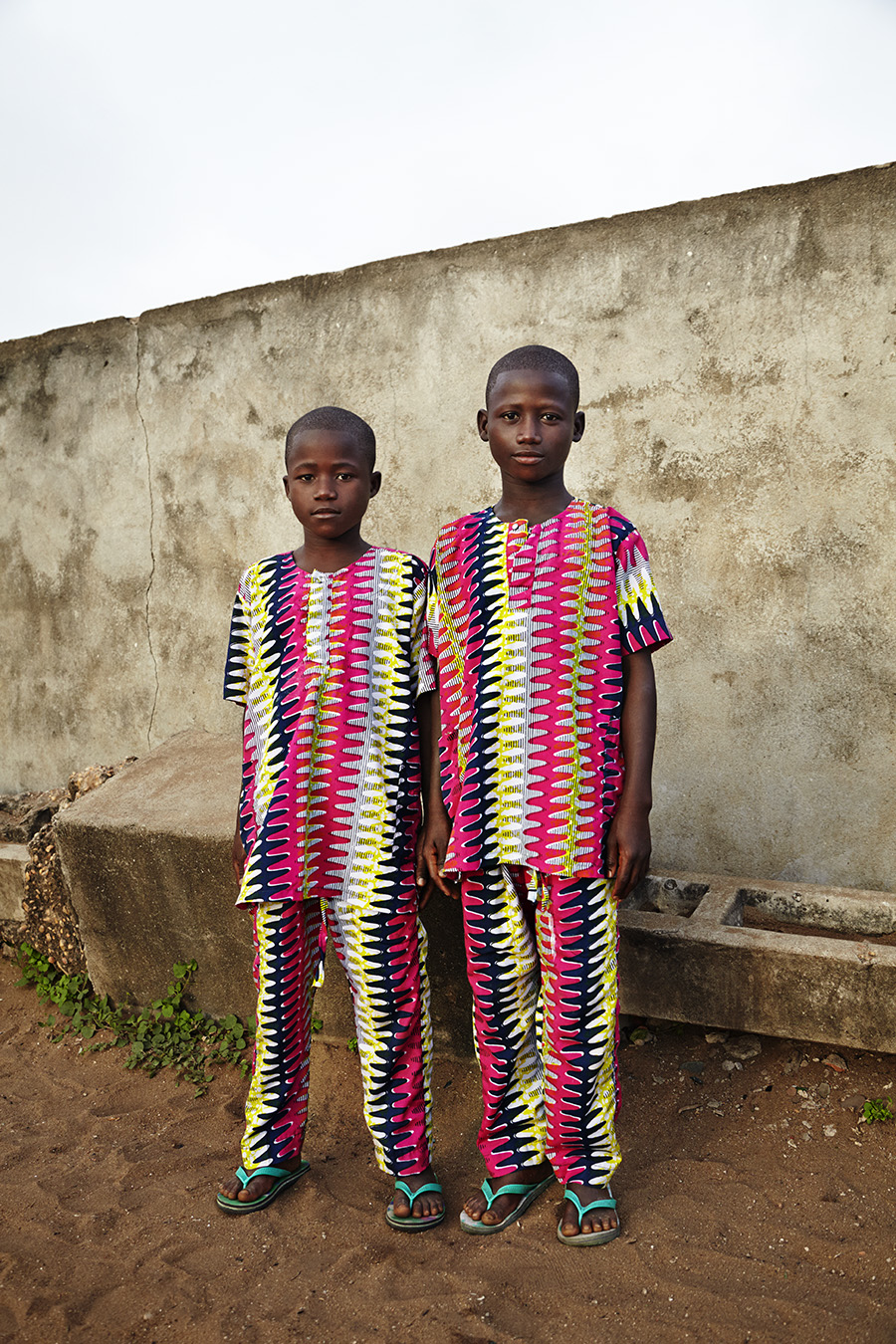
Brothers at the Mami Wata Festival, Benin 2014
“African and Dutch wax textiles are important to West African history, folklore, tradition, and identity. Numerous times I saw a mother with her children all dressed head to toe in the same print. Bridal dowries often include several symbolic wax fabrics to ensure desirable things for a marriage, such as fertility, prosperity, and love.”
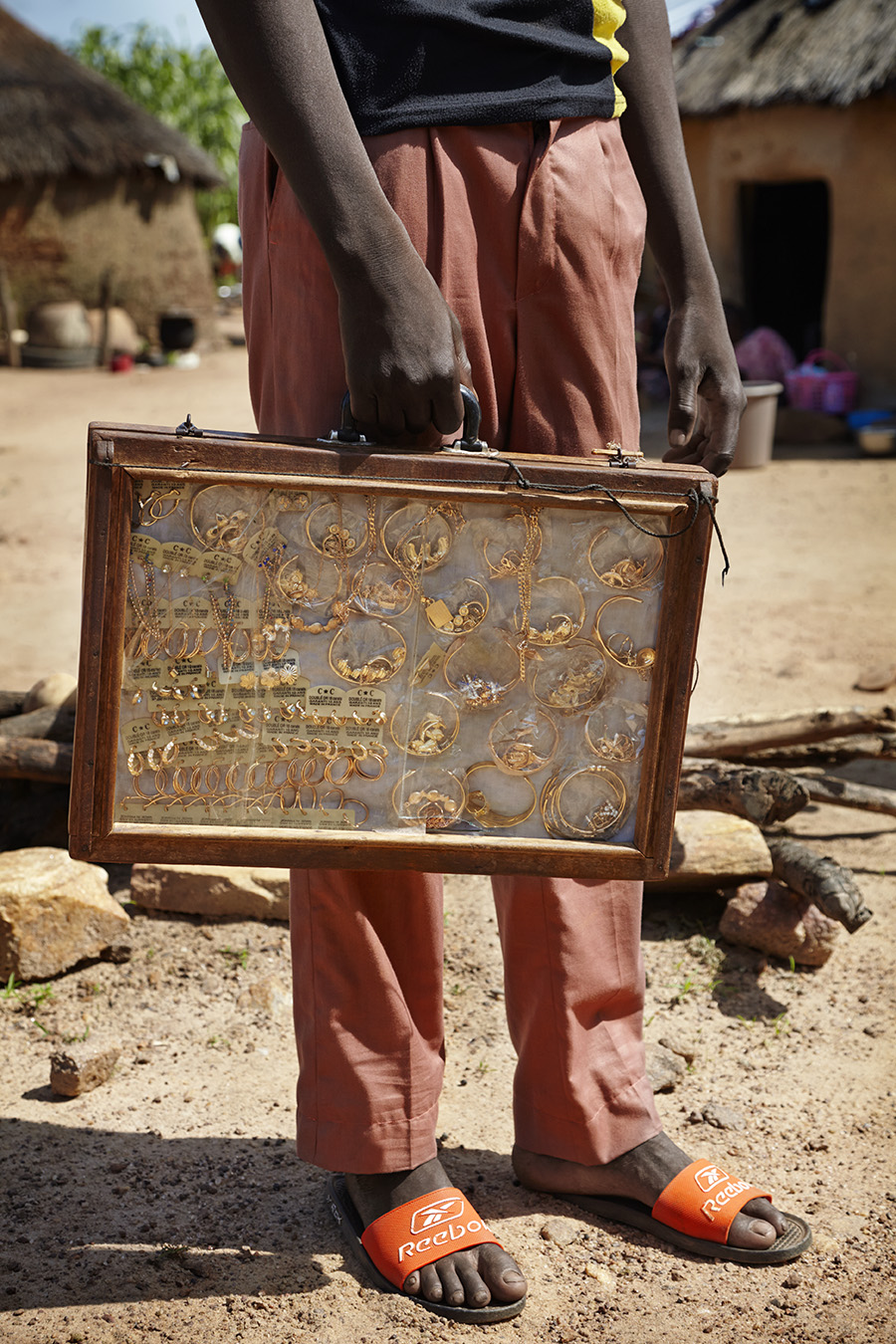
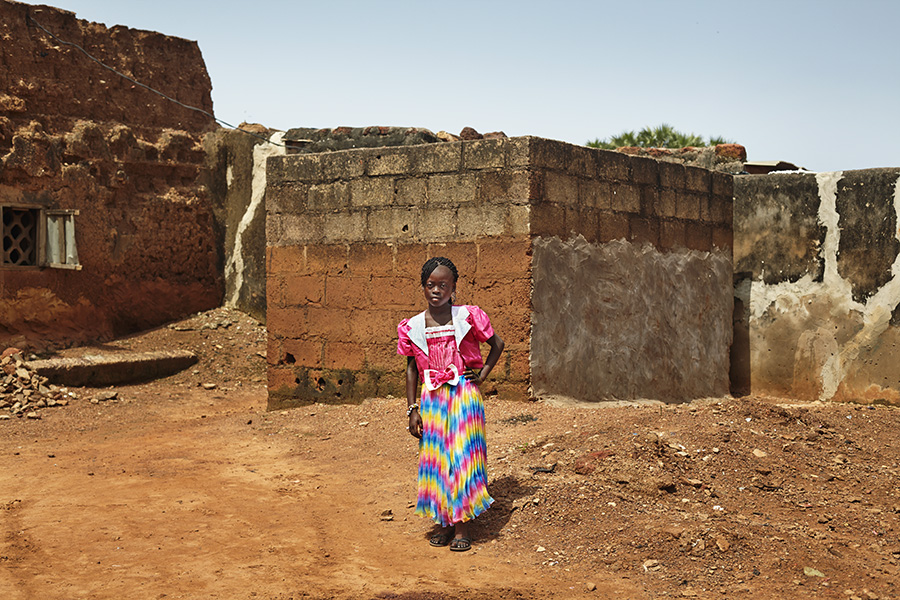
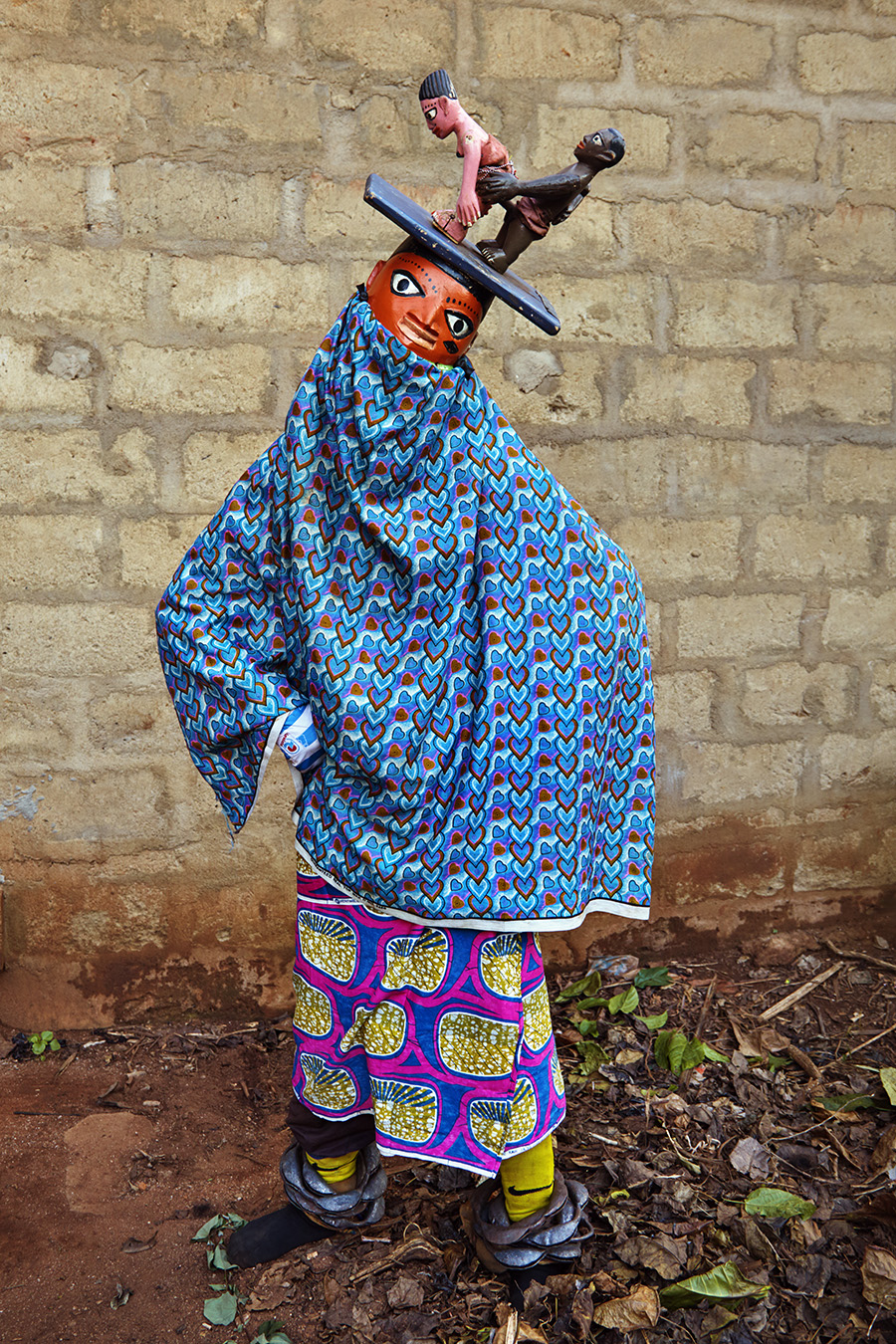
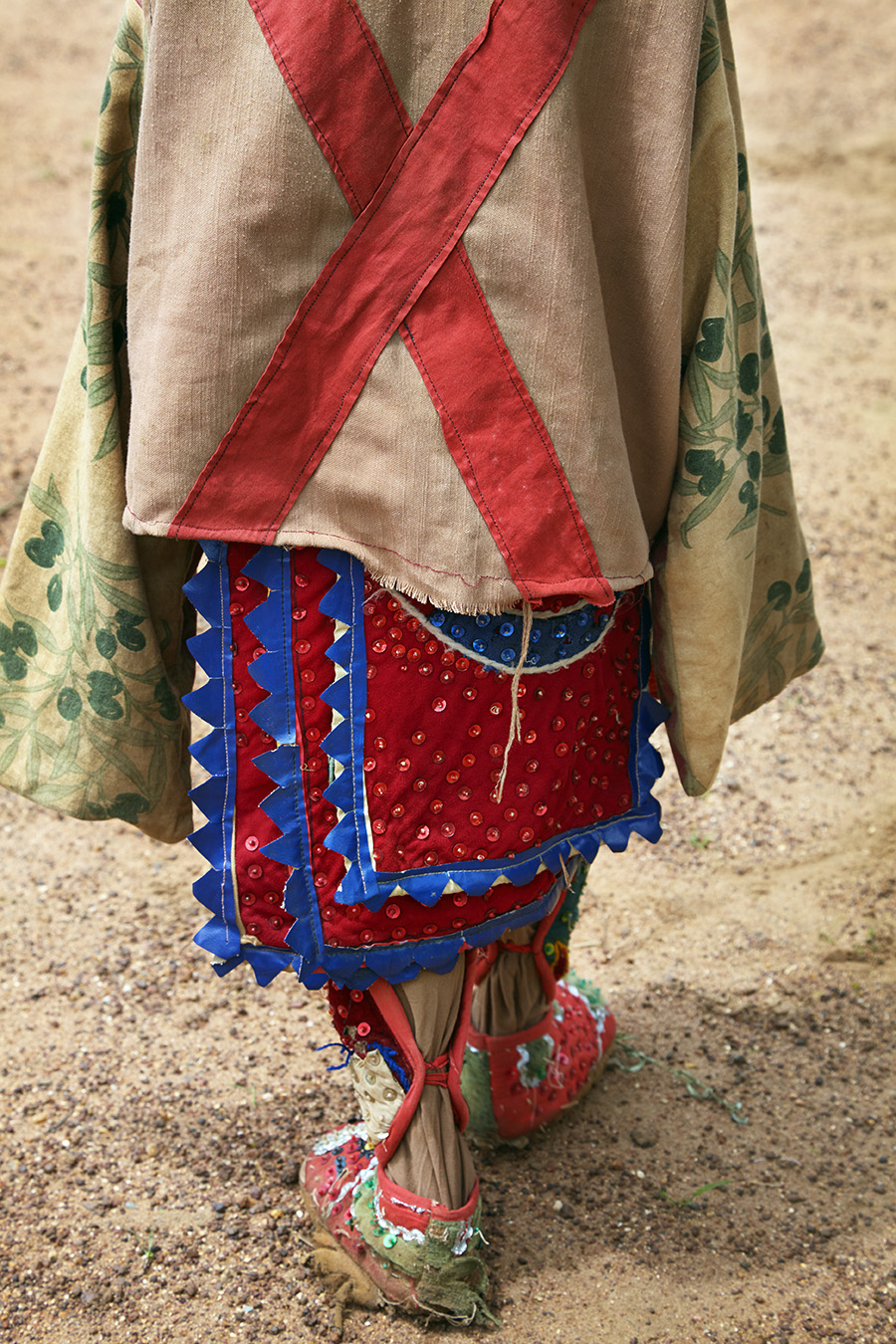
Egungun Child Spirit, Benin 2014
“The Egungun masquerades represent the spirits of the departed Yoruba ancestors, but locals say that they actually are the deceased. During this Egungun ceremony in the Dassa region, spectators immediately collapsed as if they had died when spirits touched them. Moments later, they were resurrected to rejoin the celebration.”
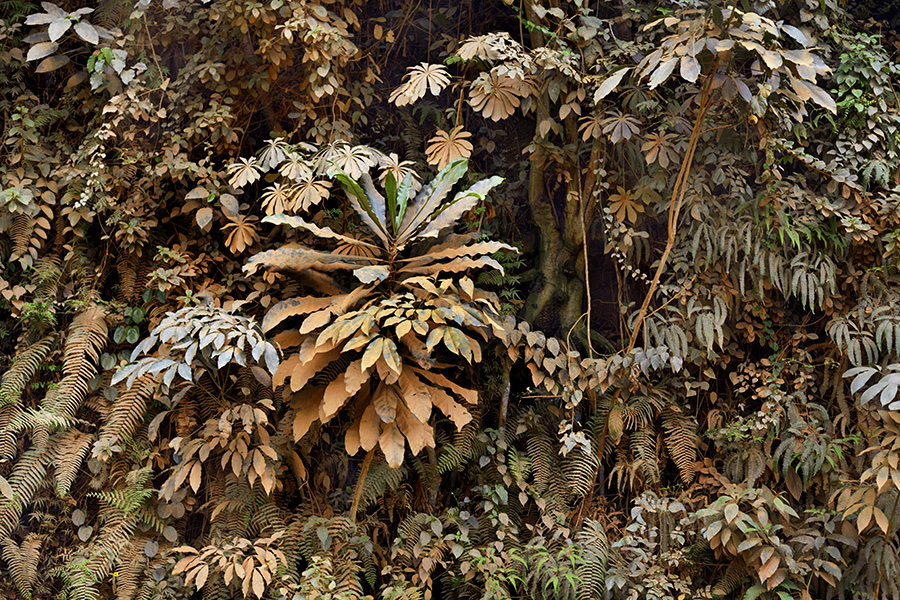
African Soil, Ghana 2014
“This photograph was taken on a road in rural Ghana that was under construction by a Chinese company. The earth was being leveled and red dust blanketed the landscape. The first time I visited Kenya, the rich, red soil stained the white soles of my running shoes. I liked carrying this physical reminder of Africa with me once I returned home.”
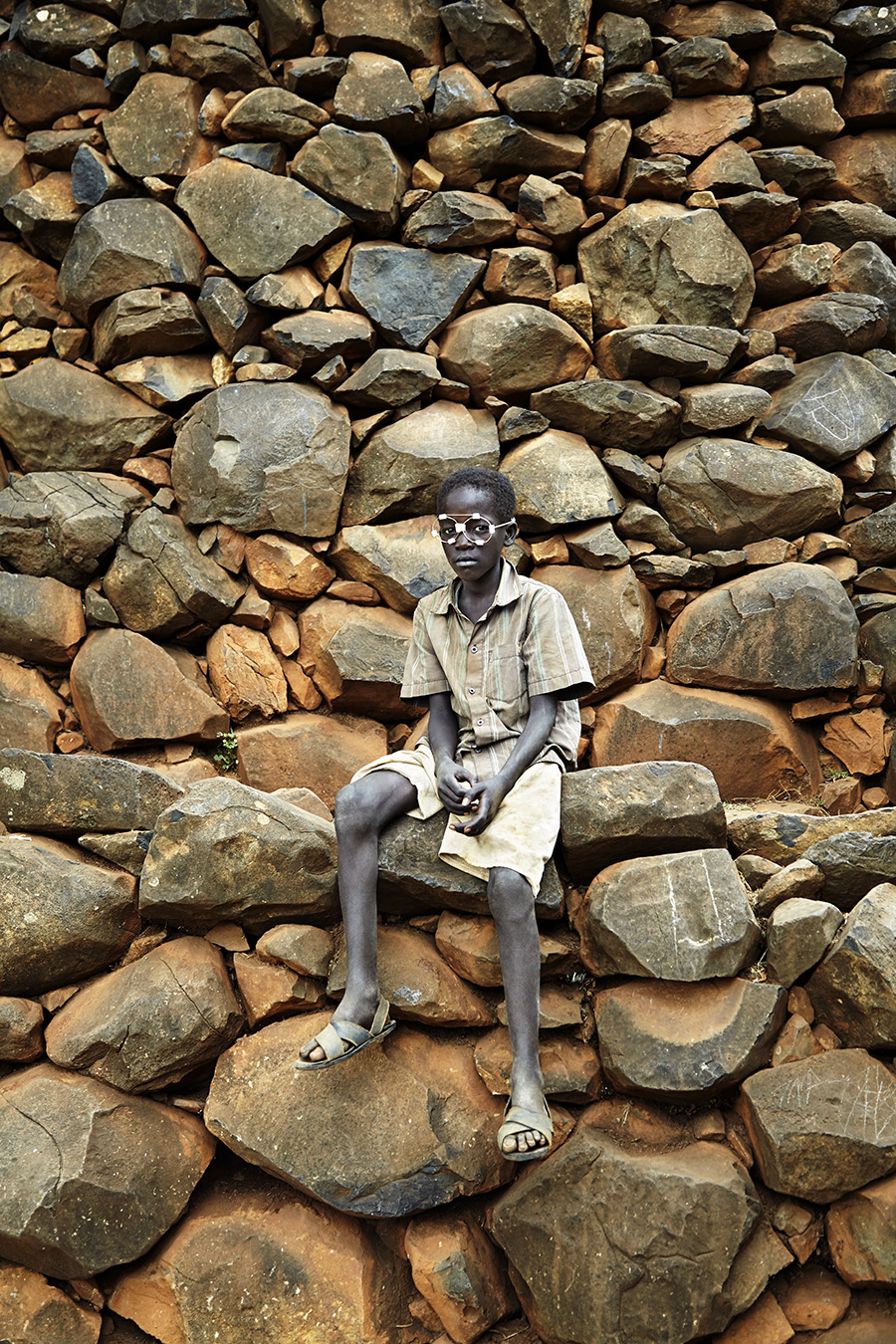
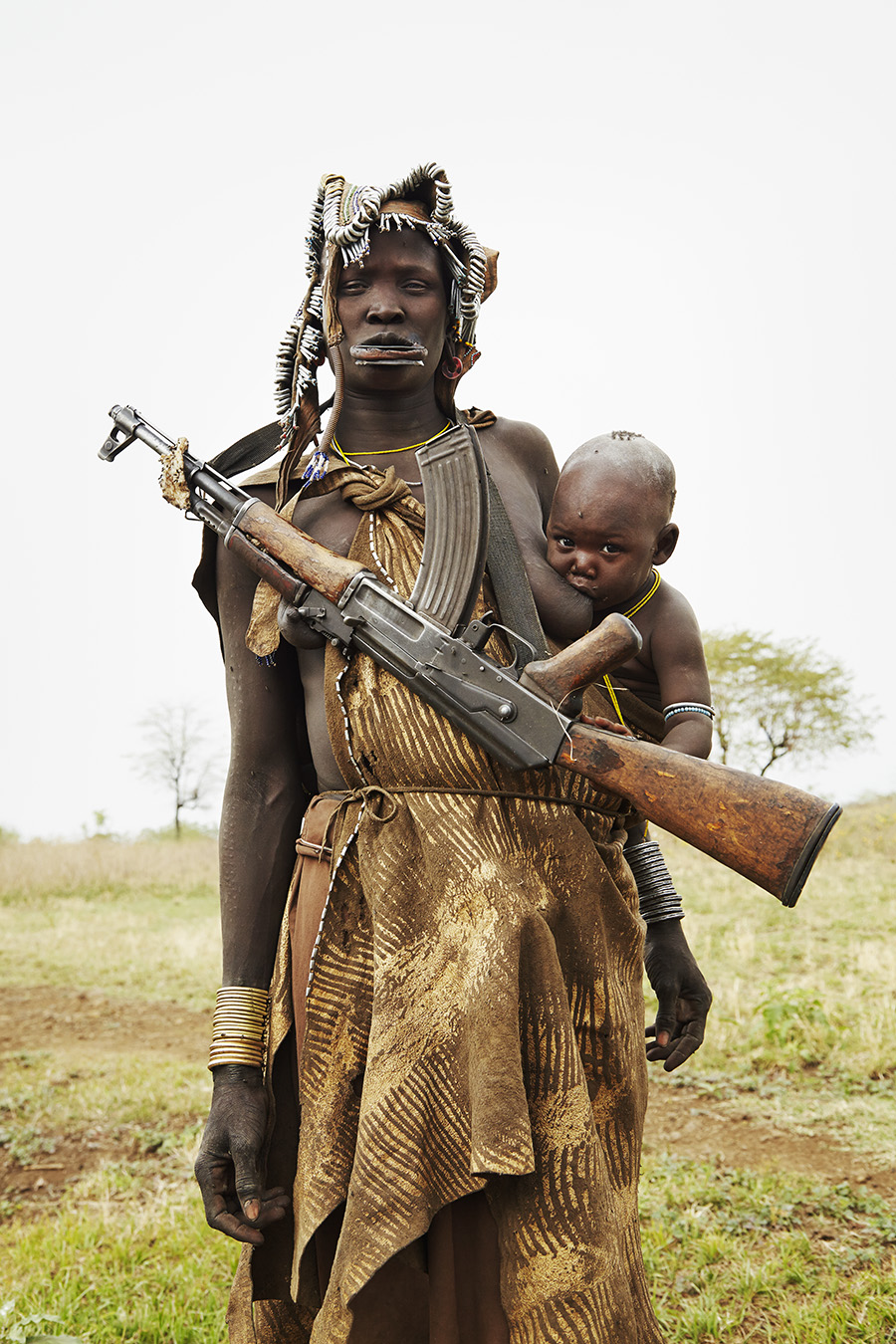
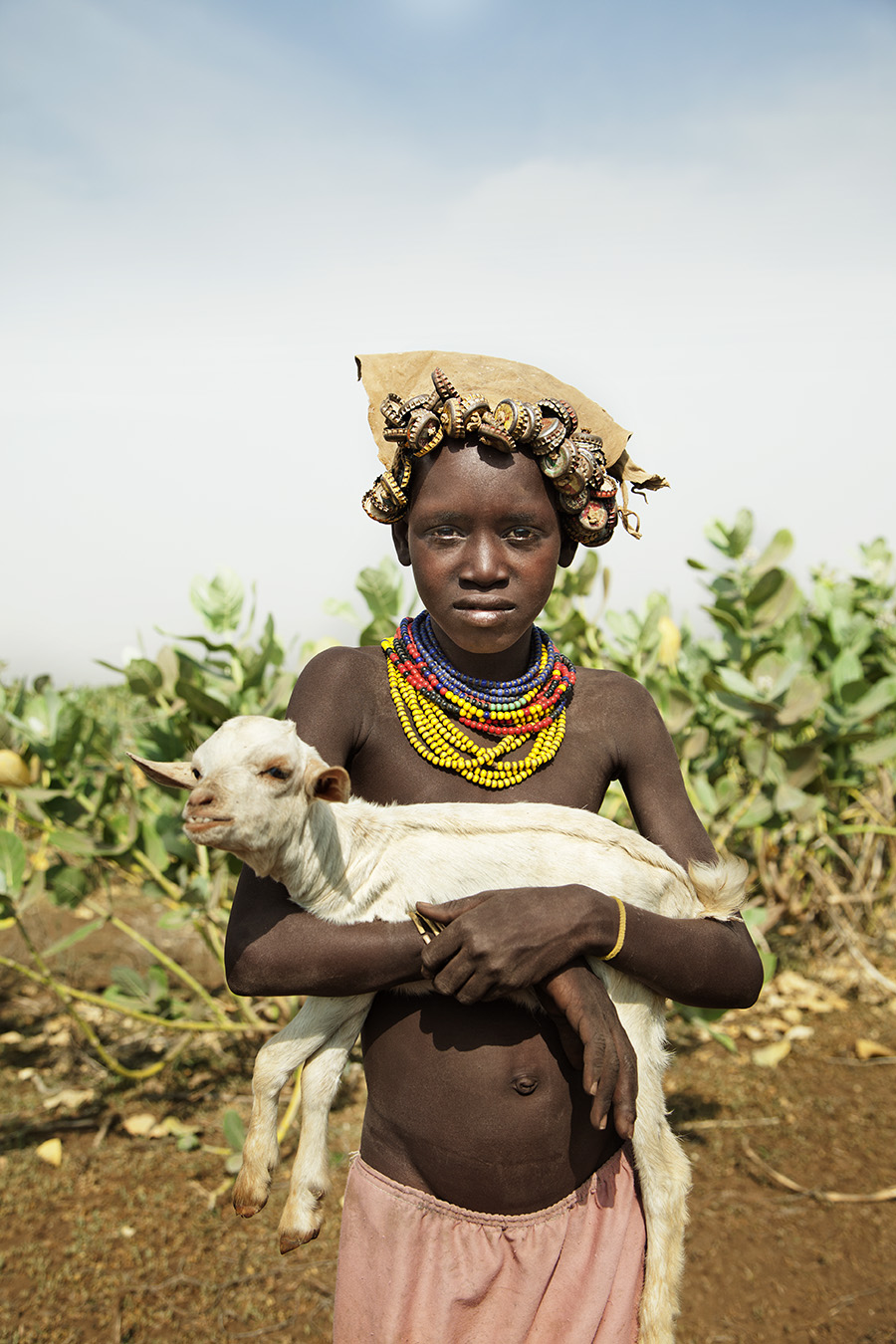
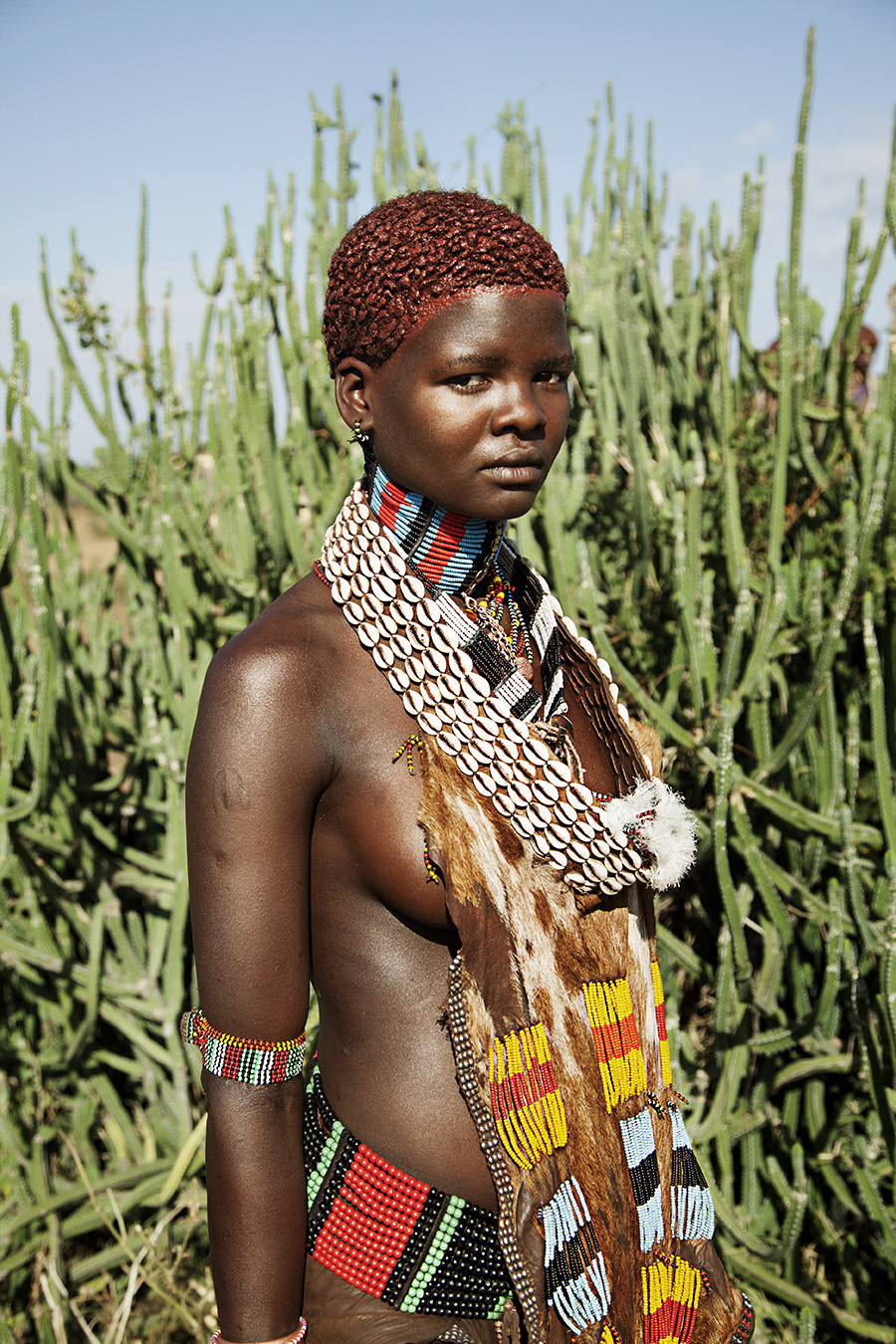
Hamar Woman, Ethiopia 2013
“Around 430 BCE, the Greek historian Herodotus wrote of Libyan women in garments of goat leather with hair “fringed at the edges, and colored with vermilion.” I was reminded of this in the Omo Valley when I saw Hamar women with their hair covered in a mixture of red ocher and ghee wearing beaded goat skins.”
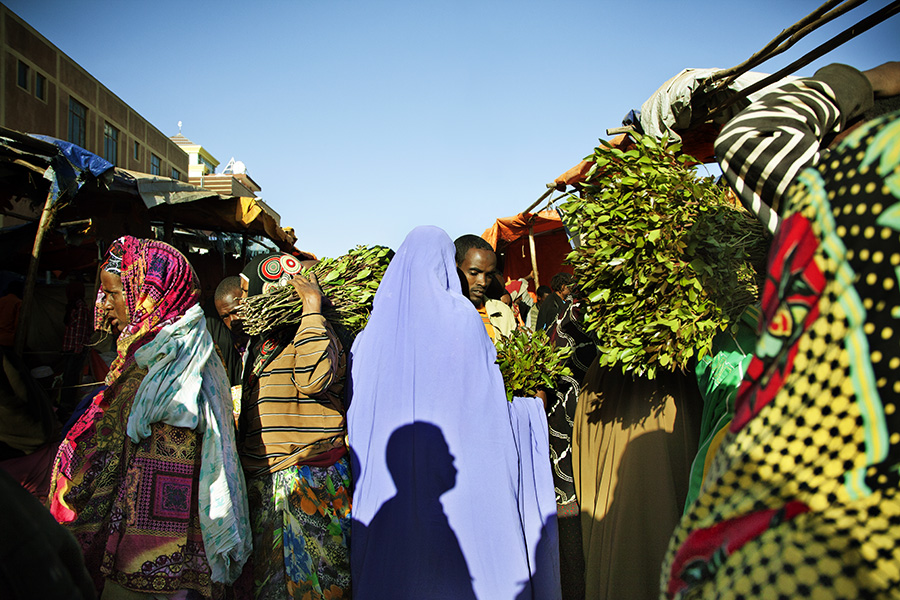
Khat Market, Ethiopia 2013
“Ethiopia has dangerous roads and thus sometimes apocalyptic scenery, like overturned cargo trucks with blood on the driver’s seat and bees swarming the crushed produce in the back. The faster the trucks move, the more money the drivers make. Khat, a legal narcotic and major cash crop in Ethiopia, is used heavily by truck drivers and contributes to the carnage.”
Circadian Landscape by Jessica Antola is available for purchase at Damiani Books
